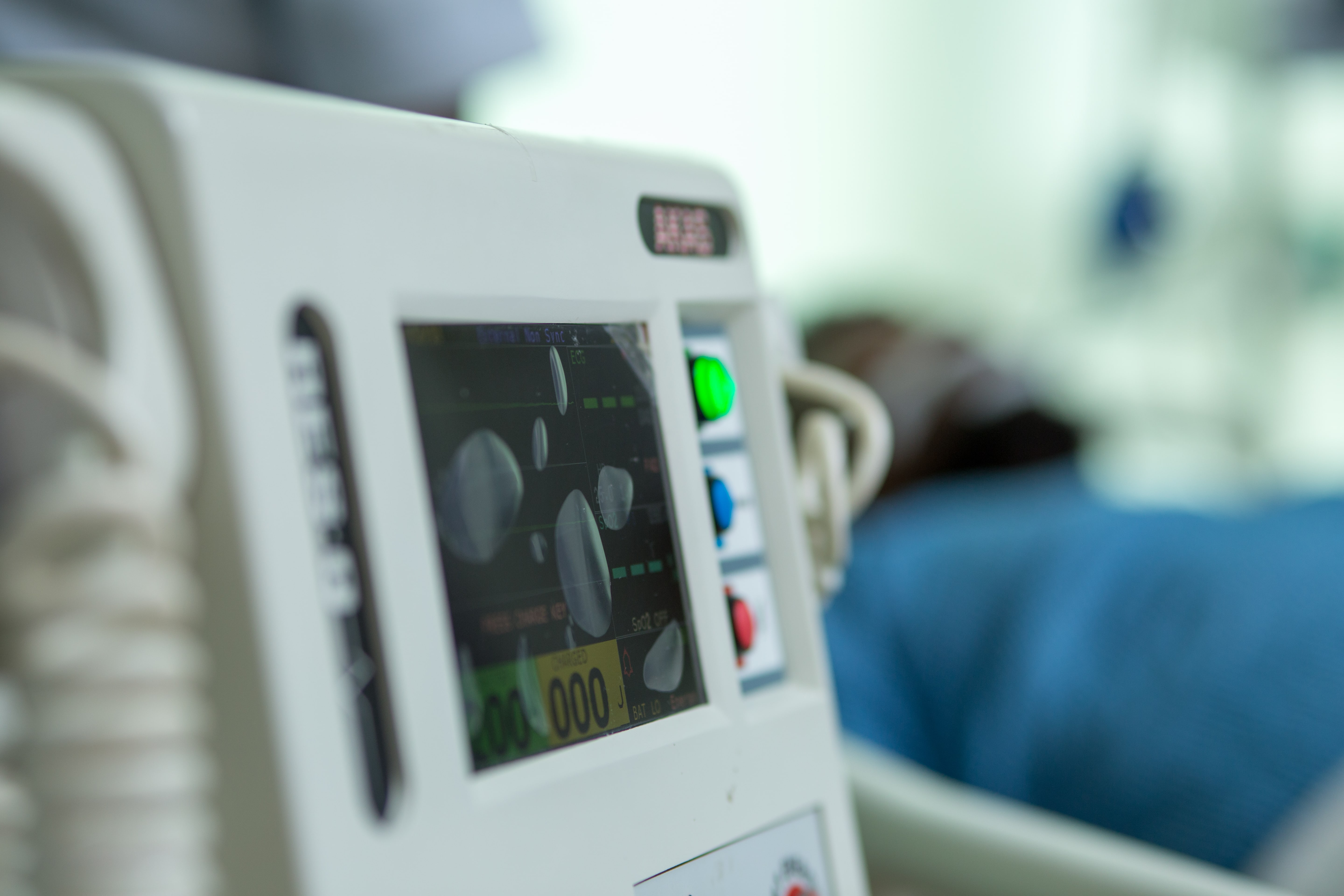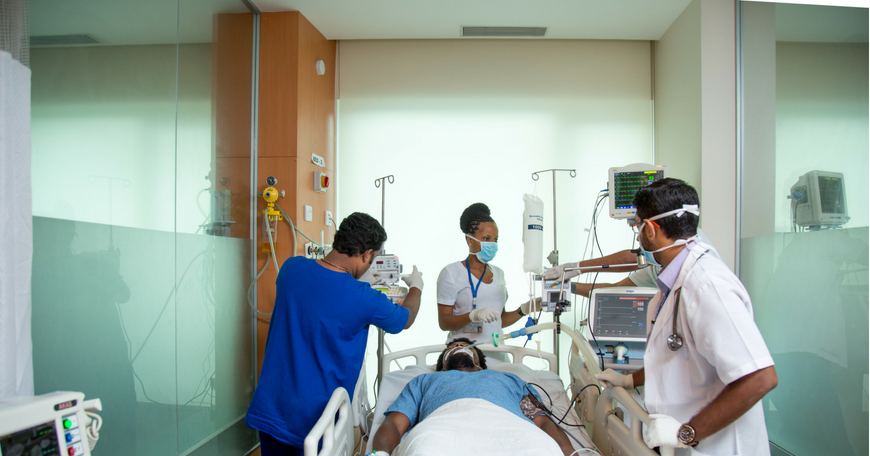4 Types of Patients You Usually Find in the Intensive Care Unit
76,032 views4 Types of Patients You Usually Find in the Intensive Care Unit
It is a common misunderstanding among people that those admitted in the intensive care unit, or ICU, are those that are facing some dire issues.
ICUs are created in order to look after the welfare of patients that need ventilators, blood pressure support and medication, cutting edge treatments and close monitoring by doctors and other healthcare staff.
It is hardly the case that everyone admitted to the ICU is on the verge of losing their battle to survive. In fact, one study suggests that more than half the patients admitted to the ICU have an exceedingly low risk of dying during their hospital stay.
Patients that are being treated in general wards may find shifting to the ICU highly cumbersome. Moreover, it can also expose the patient to the risk of bothersome, painful and sometimes potentially dangerous conditions.
They are more likely to undergo harmful procedures and exposed to life-threatening infections. It has been found that using the ICU to admit patients who do not need the ICUs unique services is a key source of inefficiency in our healthcare system.
What is an ICU?
 The intensive care unit of a hospital is usually where patients that are seriously ill, or those that require specialized care, are admitted. It is staffed by a specially trained staff that comprises of doctors, nurses, respiratory therapists, clinical nursing specialists, pharmacists, nurse practitioners, physician assistants, dietitians, social workers and others.
The intensive care unit of a hospital is usually where patients that are seriously ill, or those that require specialized care, are admitted. It is staffed by a specially trained staff that comprises of doctors, nurses, respiratory therapists, clinical nursing specialists, pharmacists, nurse practitioners, physician assistants, dietitians, social workers and others.
The equipment in the ICU may seem a little over-the-top at first glance, but each piece of machinery plays a crucial role in keeping the patient alive and healthy. There are machines to monitor the heart rate, blood pressure, ventilators to assist the patient in breathing, and many others.
The ICU also has special guidelines for visitors. Visitors may be requested to stay in the room of the patient they are visiting. They may also be requested to wait in the common waiting room during doctors rounds, for emergencies or during certain procedures.
Types of Patients in ICU?
-
Patients who Required Close Monitoring
There are some patients who need very close monitoring, be it after a surgical intervention or even following an accident or a head injury. When it comes to critical care of a patient, chances are that things can go either way very quickly.
This makes monitoring the patient extremely crucial. This involves the optimization of the patient’s hemodynamic condition, ventilation, temperature, nutrition, and metabolism.
These factors can drastically improve the patient’s chances of survival. The critical deciding factor is the efficiency with which the oxygen is being supplied to the tissues depending upon their unique metabolic needs. This is crucial in order to fuel its mitochondrial respiration and therefore help the patient survive. ICU patients may also have some imbalance of nutrients and/or chemicals in their bodies. Close monitoring is more often than not the best way to make sure that their health does not take a turn for the worse.
-
Patients who Facing Lung Issues
Patients whose lungs become inflamed because of injury or infection often find it difficult to breathe. This may require that they are put on ventilator support to help them breathe normally.
The inflammation in question often makes the small blood vessels leaky and allows fluid to collect in the lung tissues. This just goes to increase the pressure on the small pouches which help in exchanging the air leading them to close up.
This can make it very hard for the patient to breathe. In conditions like these, it is crucial that the patient is supported in breathing with the help of ventilator while the treatment of the ailment continues simultaneously.
-
Patients with Cardiac Problems
Patients that are suffering from very low or very high blood pressure, or those that have just had a heart attack or are suffering from an unstable heart rhythm, often need constant observation.
The Intensive Care Unit ensures that patients suffering from heart problems get the monitoring they require.
People who have just undergone heart surgery are often prone to infections or other serious risks. This makes it crucial that these patients are admitted in the ICU in order to ensure that they are constantly monitored for anything that might go wrong with their health.
For heart attack patients the first 24 to 48 hours are crucial, it is the time span when their health will be the most unstable.
This time is usually spent in the coronary care unit, or the CCU, of the hospital. CCU is an intensive care unit for heart patients. Heart patients need constant monitoring because their situation may change at any point in time and could require immediate intervention.
-
Patients With Serious Infections
There are patients that may have contracted a serious infection which has exacerbated markedly in their bodies. These patients usually require ICU care.
These infections usually lead to sepsis, it is a complication of infections that can lead to organ failure. Over a million patients are hospitalized every year for sepsis, a fact across all types of health insurance companies.
Patients that have suffered severe viral infections are often admitted in the intensive care units. These viral infections may or may not be contagious, but the priority is to have them contained and eliminated from the patient’s body at the earliest.
This makes the ICU the best bet for their recuperation. Viral infections often involve the respiratory system or the central nervous system. These can cause severe issues including morbidity and increased mortality rates among patients with a compromised immune system.
Common Infections Contracted In The ICU
During any given point of time, almost half the patients in the ICU are being treated for some infection or the other. The most common infections that one can contract during their stay in the ICU are:
Ventilator-associated pneumonia – This is related to being connected to the mechanical ventilator which aids the patient in breathing.
Central line-associated bloodstream infection – This is connected with the intravenous lines attached for administering fluids to the patient
Catheter-associated urinary tract infections – This is a condition that is usually contracted by the urinary or Foley catheters to evacuate the patient’s bladder.
Surgical site infections – There are times when the surgical site often gets infected during the ICU stay, this is that condition.
Clostridium difficile infection – this is a bowel infection that usually occurs after antibiotic use.
There are a number of factors that dictate when a patient should be admitted in the ICU. At Regency Medical Centre we have a number of factors and checks that dictate which patients need to be admitted in the ICU. We are careful about ensuring patient health at every step and make no decision to hinder their healing process.


